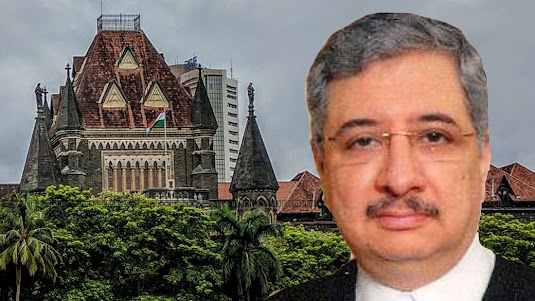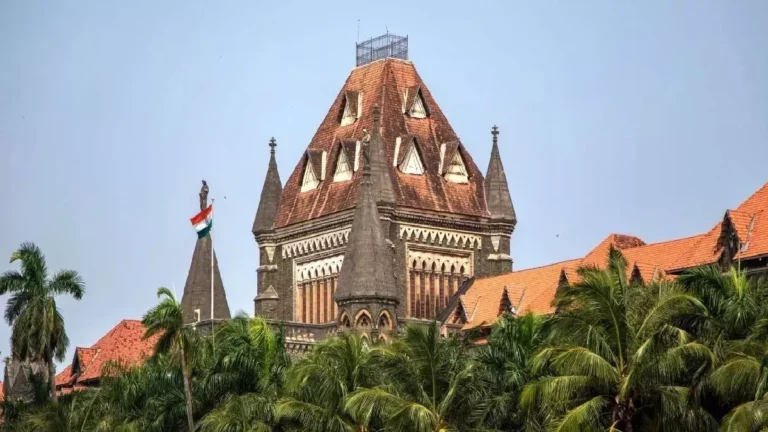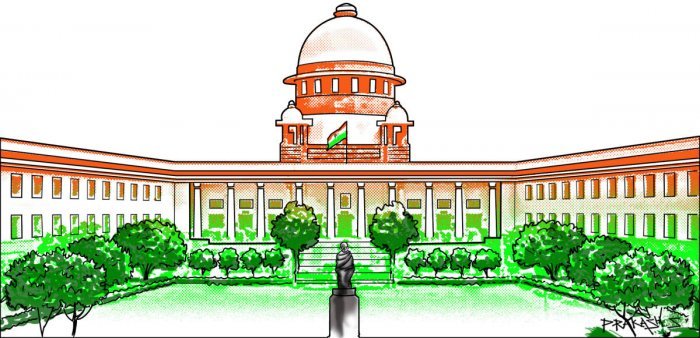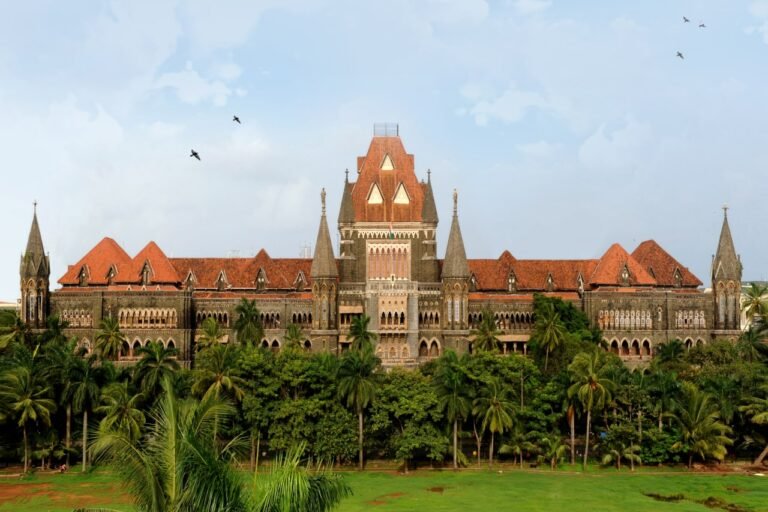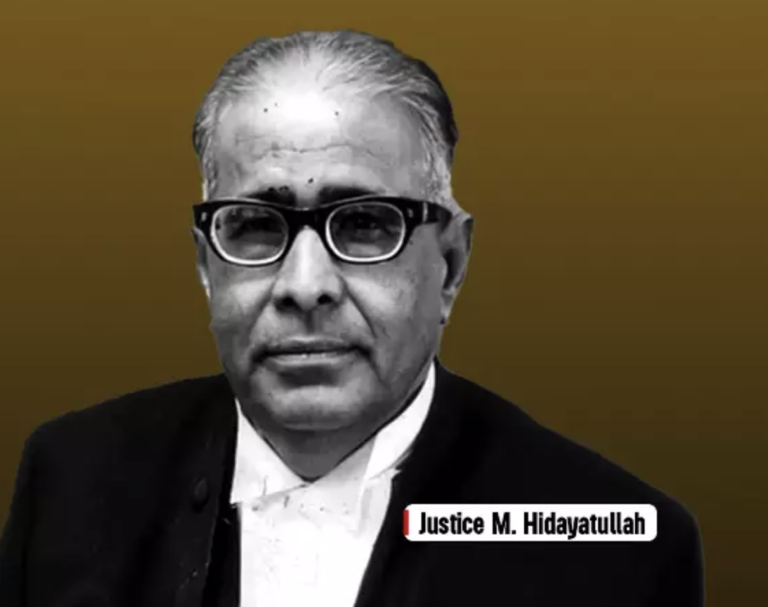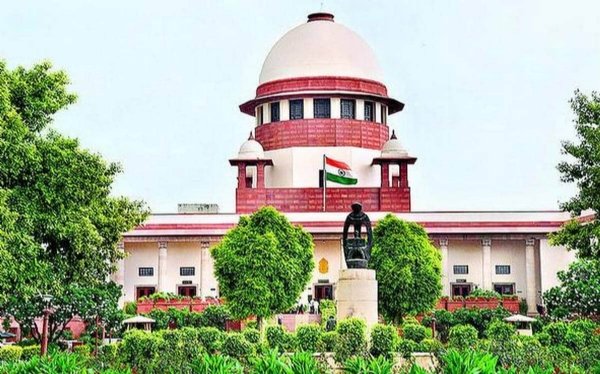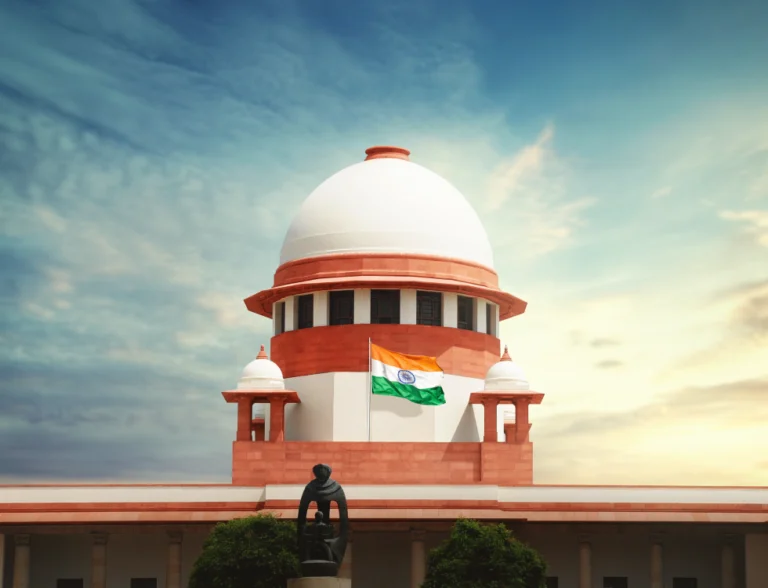In a recent judgment dated 13th January 2022, the U.S. Supreme Court quashed the similar order passed by American President Joe Biden. Where the unvaccinated peoples were asked to get RTPCR test every week.
1. The judgment is passed by ignoring and without considering the provisions of Sec. 38, 39, 75, 76 of Disaster Management Act, 2005 which says that the State Authority cannot bring any mandate against the policy decision of Central Government. Hon’ble Supreme Court in the Case of Mazdoor Sabha Vs. State of Gujarat (2020) 10 SCC 459 made it clear that the state Government has to work in co-ordination with Central Government.
2. Due to lack of jurisdiction Hon’ble U.S. Supreme Court quashed the similar vaccine mandate issued by the President Joe Biden.
Link: https://drive.google.com/file/d/1LDCp1boZoApk7BKMaoyFPIYcVA6KaNya/view?usp=sharing
3. The judgment in Deepak Kumar Khurana’s Case (Supra) is passed by ignoring the policy decision of Central Government that there cannot be any discrimination on the basis of vaccination status of a person and unvaccinated person should not be denied with any benefits or services.
4. That, recently on 28th November, 2021 in a Counter Affidavit is filed before Hon’ble Supreme Court by Dr. P.B.N. Prasad, working as Joint Drugs Controller (India), Central Drugs Standard Control Organization, Directorate General of Health Services, Ministry of Health and Family Welfare, Government of India, it is once again reiterated that vaccination is not linked to any benefits or services. The relevant paragraph reads as under;
“64. In so far as the Petitioner’s submissions regarding Covid 19 vaccine being mandatory, as per the Operational Guidelines document, COVID-19 vaccination is voluntary. However, it is emphasised and encouraged that all individuals take vaccination for public health and in his/ her interest as well as public interest since in case of pandemic, an individual’s ill health has a direct effect on the society. Covid-19 vaccination is also not linked to any benefits or services. Therefore, any submissions made by the Petitioner to the contrary, in so far as the Answering Respondents are concerned, is denied.”
5. That, in affidavit dated 8.10.2021 by Shri. Satyendra Singh, Under Secretary Health Ministry of India before Hon’ble Bombay high Court in Writ Petition No. 1820 of 2021, it is made clear that the COVID-19 vaccination is completely voluntary for all citizens of India and Ministry of Health and Family Welfare, Government of India has not formulated or suggested any policies for discrimination between citizens of India on the basis of their vaccination status. The relevant paras of the affidavit read as under;
“9. That, it is further humbly submitted that the directions and guidelines released by Government of India and Ministry of Health and family Welfare, do not entail compulsory or forcible vaccination against COVID-19 disease implying that COVID-19 vaccination is completely voluntary for all citizens of India. Ministry of Health and Family Welfare, Government of India has not formulated or suggested any policies for discrimination between citizens of India on the basis of their vaccination status.
10. That, it is duly advised, advertised and communicated by MoHFW through various print and social media platforms that all citizens should get vaccinated, but this in no way implies that any person can be forced to be vaccinated against her / his wishes.
11. That, as per the existing guidelines, there is no provisions for forcing any citizen to book appointment for Covid Vaccination on Co-WIN or visiting Covid Vaccination Centre for vaccination if a person above the age of 18 years visits a Covid Vaccination Centre by her / his choice for vaccination and asks for the same, it implies that she / he is voluntarily coming to the center to get the benefit of Covid Vaccination.”
6. That in the reply under RTI 01.03.2021 given by the Health Ministry makes it abundantly clear that the various facilities such as train travels, salary etc. cannot be connected with the vaccination status of a person.
“RTI reply by Government of India’s Health Ministry on 1.03.2021 to Shri. Anurag Sinha
प्रश्न १: कोरोना वैक्सीन लेना स्वैच्छिक है याअनिवार्य , जबरदस्ती?
उत्तर : कोरोना वैक्सीन लेना स्वैच्छिक है।
प्रश्न २: क्या वैक्सीन नहीं लेनेपर सारीसरकारी सुविधाए बंद करदी जायगी, सरकारी योजनापेंशन ?
उत्तर : आवेदन में लिखी बातें निराधार है। किसीभीसरकारीसुविधा, नागरिकता, नौकरीइत्यादिसेवैक्सीनकाकोईसम्बन्धनहींहै।
प्रश्न ३: क्या वैक्सीन नहीं लेनेपर नौकरीनहीं मिलेगा, ट्रेन, बस, मेट्रो मेंचढ़ने नहींमिलेगी?
उत्तर :आवेदन में लिखी बातें निराधार है। किसीभीसरकारीसुविधा, नागरिकता, नौकरीइत्यादिसेवैक्सीनकाकोईसम्बन्धनहींहै।
प्रश्न ४: यदि कोईIAS, IPS स्वास्थ्य यापुलिस कर्मचारी नागरिक कोधमकी देकी वैक्सीन ले नहीतो येकर देगेतो नागरिकक्या करसकती क्याकोर्ट जासकते हैं?
उत्तर : आवेदन में लिखी बातें निराधार है। किसीभीसरकारीसुविधा, नागरिकता, नौकरीइत्यादिसेवैक्सीनकाकोईसम्बन्धनहींहै।
प्रश्न ५: क्या वैक्सीन नहीं लेनेपर स्कूलों, कॉलेज, विश्वविद्यालय, गैस कनेक्शन, पानी, बिजलीकनेक्शन, राशनआदि केलिए क्यावैक्सीन नहींमिलेगे ?
उत्तर : आवेदन में लिखी बातें निराधार है। किसी भी सरकारी सुविधा, नागरिकता, नौकरी इत्यादि से वैक्सीन का कोई सम्बन्ध नहीं है।
प्रश्न ६: क्या वैक्सीन नही लेनेपर नौकरीसे निकलाजा सकताहै वेतनरोका जासकत है, निजी औरसरकारी विभागदोनों मे?
उत्तर : आवेदन में लिखी बातें निराधार है। किसीभीसरकारीसुविधा, नागरिकता, नौकरीइत्यादिसेवैक्सीनकाकोईसम्बन्धनहींहै।”
7. The judgment is also passed by ignoring the data and stand of the State Government which is recently relied by the State which are FAQ.
The question and Answers at Point No. 23 & 24 of FAQ reads thus;
“23. Do I need to use the mask/ other COVID-19 appropriate precautions after receiving the vaccine?
Yes, it is absolutely necessary that everyone who has received the COVID-19 vaccine should continue to follow the COVID-19 appropriate behaviour i.e., mask, do gaj ki doori and hand sanitization to protect themselves and those around from spreading the infection.
24. How long will I remain protected after vaccination?
Longevity of the immune response in vaccinated individuals is yet to be determined. Hence, continuing the use of masks, handwashing, physical distancing, and other COVID-19 appropriate behaviours is strongly recommended”
[emphasis supplied]
21. Is it mandatory to take the vaccine?
Vaccination for COVID-19 is voluntary. However, it is advisable to receive the complete schedule of COVID-19 vaccine for protecting oneself against this disease and to limit the spread of this disease to the close contacts including family members, friends, relatives, and co-workers.”
8. As per provisions of Disaster Management Act, 2005 the State or National Authority cannot make any rules against the policy decision of the Central Government.
Section 38(1), 39(a) and 76 reads thus;
“38. State Government to take measures. —
(1) Subject to the provisions of this Act, each State Government shall take all measures specified in the guidelines laid down by the National Authority and such further measures as it deems necessary or expedient, for the purpose of disaster management.
39. Responsibilities of departments of the State Government. —It shall be the responsibility of every department of the Government of a State to—
(a) take measures necessary for prevention of disasters, mitigation, preparedness and capacity-building in accordance with the guidelines laid down by the National Authority and the State Authority;
76. Power to make regulations.—
(1) The National Institute of Disaster Management, with the previous approval of the Central Government may, by notification in the Official Gazette, make regulations consistent with this Act and the rules made thereunder to carry out the purposes of this Act.“
9. Hon’ble Supreme Court in the case of Gujarat Mazdoor Sabha Vs. State of Gujarat (2020) 10 SCC 459, had also made it clear.
“30. Even if we were to accept the respondent’s argument at its highest, that the pandemic has resulted in an internal disturbance, we find that the economic slowdown created by the Covid-19 Pandemic does not qualify as an internal disturbance threatening the security of the State. The pandemic has put a severe burden on existing, particularly public health, infrastructure and has led to a sharp decline in economic activities. The Union Government has taken recourse to the provisions of the Disaster Management Act, 2005. [ Ministry of Home Affairs, Order No. 40-3/2020-DM-I(A) dated 24-3-2020.] However, it has not affected the security of India, or of a part of its territory in a manner that disturbs the peace and integrity of the country. The economic hardships caused by Covid-19 certainly pose unprecedented challenges to governance. However, such challenges are to be resolved by the State Governments within the domain of their functioning under the law, in coordination with the Central Government.
10. Hon’ble Supreme Court in the case of Re: Distribution of Essential Supplies & Services during Pandemic (2021) 7 SCC 772, has ruled as under;
“17. The Supreme Court of United States, speaking in the wake of the present Covid-19 Pandemic in various instances, has overruled policies by observing, inter alia, that “Members of this Court are not public health experts, and we should respect the judgment of those with special expertise and responsibility in this area. But even in a pandemic, the Constitution cannot be put away and forgotten” [Roman Catholic Diocese of Brooklyn v. Cuomo, 2020 SCC OnLine US SC 9 : 141 S Ct 63 : 592 US ….(2020)] and “a public health emergency does not give Governors and other public officials carte blanche to disregard the Constitution for as long as the medical problem persists. As more medical and scientific evidence becomes available, and as States have time to craft policies in light of that evidence, courts should expect policies that more carefully account for constitutional rights” [Calvary Chapel Dayton Valley v. Sisolak, 2020 SCC OnLine US SC 10 : 140 S Ct 2603 (2020) (Mem) (Justice Alito Dissenting Opinion)].”
11. In case of Calvary Chapel Dayton Valley Vs. Steve Sisolak, Governor of Nevada 2020 SCC OnLine US SC 10, it is ruled as under;
“The Governor of Nevada apparently has different priorities. Claiming virtually unbounded power to restrict constitutional rights during the Covid-19 pandemic, he has issued a directive that severely limits attendance at religious services.
That Nevada would discriminate in favor of the powerful gaming industry and its employees may not come as a surprise, but this Court’s willingness to allow such discrimination is disappointing. We have a duty to defend the Constitution, and even a public health emergency does not absolve us of that responsibility.”
12. The Ld. Bench relied on the ‘Technical Paper’ issued by the Health Ministry of Kerala but ignored the relevant observations at Page No. 12 of the said Technical Paper. It reads thus;
“Network analysis of a vaccine breakthrough infection cluster to understand transmission dynamics.
This network analysis clearly shows that persons with vaccine breakthrough infections can spread infection to others thereby highlighting the importance of masking, physical distancing and hand hygiene even for fully vaccinated persons.”
13.The judgment is passed by ignoring the actual stand of the WHO and considering the overruled and out dated article of the WHO hence it is a nullity and therefore it cannot be relied as a precedent.
14.The Ld. Bench relied on the article dated 8th December, 2020 & 13th August 2021. However in the subsequent article and latest interview dated 11.01.2022 the WHO made their stand clear that there cannot be any discrimination of unvaccinated people.
“WHO: We do not recommend distinguishing between vaccinated and unvaccinated groups and of course we do know that even if you are vaccinated you may be infected by Covid-19 and you may go on to transmit it. So we are not recommending those separations.
Source: YouTube Live: WHO Europe briefing on COVID-19 situation across continent
Link: https://youtu.be/QYnN9lSxGnM
Streamed Live on: Jan 11, 2022
WHO Covid-19 briefing on situation across continent
(20:27 – 20:35) Bhanu Bhatnagar (Press and Media Relations) Interviewer: Do you have anything to add on mandates for the unvaccinated and how effective they might be?
(20:38 – 21:17) Dr. Catherine Smallwood (Covid-19 Incident Manager – WHO Health Emergencies Programme): Thanks Sir. And then I would just say that from WHO’s perspective in terms of putting in place measures in Broader Community. We do not recommend distinguishing between vaccinated and unvaccinated groups because that will go further in terms of exacerbating inequalities in the population and of course we do know that even if you are vaccinated you may be infected by Covid-19 and you may go on to transmit it. So we are not recommending those separations.May be Siddhartha my colleague say more about vaccine mandates.”
15. Furthermore, The Bench in Para 11 of the order placed reliance on World Health Organization’s Article dated 8th December, 2020 titled ‘How do vaccines works?’.
15.1. In fact said data is wrong and later corrected by the WHO on 4th January, 2021 observing that the ‘Heard Immunity can be achieved either from vaccines or through natural immunity developed through previous infection.
Hence it is clear that, the Ld. Bench relied on outdated, overruled documents.
15.2. That in India, as per Sero-Survey more than two third (75%) of the population is having natural immunity. Hence the reliance of the above article of WHO is misplaced.
15.3. In India the actual comparison is in between vaccinated and persons with antibodies. But some intellectual dishonest people are trying to misdirect the case and divest the attention to irrelevant things with only purpose to give wrongful profit to vaccine companies.
15.4. Furtherance, on 8th December, 2020 the vaccination was not started in India. In India it started on 16thJanuary, 2021. So that data is not of any use.
16. In fact India is not following WHO guidelines due to many reasons.
16.1. Government of India refused to follow the suggestion/warnings of WHO regarding use of Ivermectin & Remdesivir.
17. That, Government of India & State of Maharashtra also refused to follow the suggestions of WHO to not to use Ivermectin.
18. That, the State of Goa in their Case between South Goa Association Vs. State of Goa PIL W.P. No. 1172 of 2021 in their affidavit dated 27thMay, 2021 had made it clear that the WHO’s directives are false and therefore the Hon’ble High Court refused to take the WHO guidelines in to consideration.
18.1 The order dated 24th May, 2021(D.B) [Annexure – “B”] reads thus;
“3…It is submitted that in fact WHO has issued an advisory against the use of Ivermactine for Covid related treatment.”
18.2. In additional affidavit dated 27th May, 2021 by Shri. Vikas S.N. Gaunekar, the Additional Secretary (Health), Government of Goa, [Annexure – “C”] it is submitted as under;
“22. I say that various studies conducted in different countries have shown that the said medicine has a positive effect on prevention and treatment/cure of patients. I say that the studies and reports are available on the website ivmmeta.com. I say that there are some reports which have found that the analysis by WHO on this medicine is flawed and that the mortality rate is actually much lower if the said medicine is used for early treatment as well as prophylaxis.”p ;
18.3. The order dated 28th May 2021 [Annexure – “D”] reads thus;
“13. As regards the use of Ivermectin, the issue raised by the petitioner in Writ Petition No.1216 of 2021 concerns mainly its prophylactic use. As for its therapeutic use, it is nobody’s case that the medicine has not been included by ICMR for Covid-19 treatment protocol. Though the expert committee of the State, in its decision dated 13/05/2021, has recommended even prophylactic use of Ivermectin, from the affidavit filed by the State its the Additional Secretary (Health) what emerges is that the State has, for the present, decided that the medicine, i.e. Ivermectin, would be given to all suspected and symptomatic patients and provided in the kit to be supplied to positive patients in home isolation.”
19. Such judgments which are based on the incorrect submissions of the parties (Amicus Curiae) or failure of the Bench to consider the relevant provisions of the statute are nullity, per-incuriam and not binding. Its validity can be challenged wherever such judgments are relied by the parties. [Union of India Vs. Ramesh Gandhi (2012) 1 SCC 476, A.V. Papayya Sastry Vs. Govt. of A.P. (2007) 4 SCC 221, State of M.P. Vs. Narmada Bachao Andolan (2011) 7 SCC 639]
20. Observations by the Ld. Bench in Para 12 are based on false and incorrect assumption.
20.1. That the Ld. Bench in Para 12 observed thus;
“12. The aforesaid material illustrates the position that the generally accepted medical opinion by International and State Agencies and Governments across the world is that a Covid-19 vaccination not only gives significant protection against contracting the disease, but also significantly reduces the risk of its transmission. It is therefore logical and reasonable to regard unvaccinated persons as posing a significantly greater risk of infection and transmission of Covid-19 than vaccinated persons. On the same basis, it is untenable to contend that vaccinated and unvaccinated persons stand on the same footing as far as the transmission of the disease is concerned.”
20.2. Abovesaid observations are ex-facie incorrect because it is not the stand of any Government nor it is mentioned in the orders and SOP that the vaccinated people spread less infection.
On the contrary the stand of the State and Central Government and recently by the WHO is clear that there is no difference between vaccinated and unvaccinated regarding spreading of infection.
23. The ld. Bench ignored the letter dated 21st October, 2021issued by Shri. Dr. Annadurai Annavi, Chief Medical Officer, of Bombay Municipal Corporation in the same case where it is clearly mentioned that all the employees (including the vaccinated) people should also get RT-PCR Test regularly as spread of infection can be done by the vaccinated. Relevant Para reads thus:
“Sir / Madam,
In view of suspected and expected third wave of Covid- 19, and the relaxation in the restrictions, Covid-19 Testing has to be implemented all over Mumbai strictly. A new and slightly changed version of Delta Corona Virus variant has already spread to 11 countries so far, including India, raising fears that it could drive the next wave of infection across the world. The progression of illness seems to be prevented by vaccination. As the vast majority of break through cases are mild or A-symptomatic people with break through infections, may not even know to get tested and could thus transmit the virus unknowingly. Hence, early diagnosis is the key to prevent the spread of the diseases as well as for the recovery of the patients.”
24. Such casual approach of the Ld. Bench in passing orders in cavalier fashion is against the guidelines issued by the Apex Court. Hon’ble Supreme Court time and now directed all the courts to give intelligent reasons and not the rubber stamp reasons. [Neeharika Infrastructure Pvt. Ltd vs. State of Maharashtra 2021 SCC OnLine SC 315, Dhanuben Patel Vs. Oil And Natural Gas Corporation Of India 2014 SCC Online Guj 15949].
25. Needless to mention here that the Hon’ble Division Bench of Bombay High Court in the case of Trident Steel and Engineering Co. 2018 SCC OnLine Bom 4060, has observed that the ld. Justice Shri. S.J. Kathawalla is not having the basic knowledge of Cr.P.C. and he usurped/snatched the jurisdiction which was not assigned to him. The illegal order was passed by ld. Justice S.J. Kathawalla was set aside by the Hon’ble Division Bench.
26. Observations in Para 13 are also incorrect as seen from the available record and also proved from recent data which proves that the risk of infection is higher in vaccinated than unvaccinated.
27. Furthermore, the falsity of this narrative is ex-facie proved from the data already given in the Addl. Affidavit. Said data makes it clear that, the hospitalization and deaths are higher amongst vaccinated.
(i) On 18thDecember, 2021 the infection and hospitalization of Covid-19 patient in Maharashtra specifically for Omicron was 100% from vaccinated people. But this fact was deliberately and conveniently suppressed by the Respondent No. 1 in his affidavit dated 21.12.2021
Link :-.
(A copy of article published in Times of India titled as “8 more Omicron cases found in Maharashtra: 6 in rural Pune, 2 in MMR” dated 18thDecember, 2021 is marked and annexed herewith Exhibit “RA-4”) (Page No. 270)
(ii) That, the news dated 21st December,2021 published in Times of India also falsifies the narratives of the State. The news expose that the 81% of Omicron patients in Maharashtra are from fully vaccinated category.
(iii) More than half of hospitalised Covid-19 cases among vaccinated in Bengaluru
(iv) Over 50% new COVID-19 cases and deaths in Kerala from vaccinated section.
https://www.onmanorama.com/news/kerala/2021/10/12/kerala-covid-cases-deaths-among-vaccinated.html
(v) Out of 34 Omicron cases treated at Delhi hospital, 33 were fully vaccinated.
(vi) Assam: 80% Covid-19 infections among vaccinated in Guwahati
(vii) Nearly 80% (91 out of 114) Covid-19 cases reported from Sept 1 till Oct 23 in Lucknow were of breakthrough infections, according to data accessed by TOI from the office of Chief Medical Officers.
(viii) Gurgaon : Over half of Covid Cases in October were breakthrough infections
(ix) “A majority of gravely ill patients in Israel are double vaccinated. A majority of deaths over 50 in England are also double vaccinated.
Link: https://www.science.org/content/article/grim-warning-israel-vaccination-blunts-does-not-defeat-delta
https://cdn.nexusnewsfeed.com/images/2021/8/new-severe-covid-19-patients-thumb-1631973102161.png
(x) Whistleblower: FDA and CDC Ignore Damning Report that over 90% of a Hospital’s Admissions were Vaccinated for Covid-19and No One Was Reporting This to VAERS.
A concerned Physician Assistant from America, Deborah Conrad, convinced her hospital to carefully track the Covid-19 vaccination status of every patient admitted to her hospital. The result is shocking.
As Ms. Conrad has detailed, her hospital serves a community in which less than 50% of the individuals were vaccinated for Covid-19 but yet, during the same time period, approximately 90% of the individuals admitted to her hospital were documented to have received this vaccine.
One would think that after an association was identified by a healthcare professional, our health authorities would at least review this finding, right? Sadly, when Ms. Conrad reached out to health authorities herself, she was ignored. My firm then sent a letter to the CDC and FDA on July 19, 2021 on Ms. Conrad’s behalf (see letter below), yet neither agency has responded. Even worse, when doctors came to Ms. Conrad for assistance with filing VAERS report for their patients, the hospital prohibited her from filing these reports.
https://aaronsiri.substack.com/p/whistleblower-fda-and-cdc-ignore-3e2 ”
28. Hon’ble Supreme Court in the case of State of M.P. v. Narmada Bachao Andolan, (2011) 7 SCC 639, ruled that the judgment passed in ignorance or forgetfulness of some statutory provision or authority binding on the court concerned, or a statement of law caused by inadvertence or conclusion that has been arrived at without application of mind or proceeded without any reason so that in such a case some part of the decision or some step in the reasoning on which it is based, is found, on that account to be demonstrably wrong, are called as per-incuriam judgments and they loses their efficacy as a binding precedent. It is ruled as under;
“67. Thus, “per incuriam” are those decisions given in ignorance or forgetfulness of some statutory provision or authority binding on the court concerned, or a statement of law caused by inadvertence or conclusion that has been arrived at without application of mind or proceeded without any reason so that in such a case some part of the decision or some step in the reasoning on which it is based, is found, on that account to be demonstrably wrong.
64. The court should not place reliance upon a judgment without discussing how the factual situation fits in with a fact situation of the decision on which reliance is placed, as it has to be ascertained by analysing all the material facts and the issues involved in the case and argued on both sides. A judgment may not be followed in a given case if it has some distinguishing features. A little difference in facts or additional facts may make a lot of difference to the precedential value of a decision. A judgment of the court is not to be read as a statute, as it is to be remembered that judicial utterances have been made in setting of the facts of a particular case. One additional or different fact may make a world of difference between the conclusions in two cases. Disposal of cases by blindly placing reliance upon a decision is not proper. (Vide MCD v. Gurnam Kaur [(1989) 1 SCC 101 : AIR 1989 SC 38] , Govt. of Karnataka v. Gowramma [(2007) 13 SCC 482 : AIR 2008 SC 863] and State of Haryana v. Dharam Singh [(2009) 4 SCC 340 : (2011) 2 SCC (L&S) 112] .)”
29. Hon’ble Supreme Court in the case of Harshit Agarwal Vs. Union of India (2021) 2 SCC 710, has ruled that the judgment is passed by taking irrelevant considerations or relevant considerations are ignored then such judgment stand vitiated.
It is ruled as under;
“10. Judicial review of administrative action is permissible on grounds of illegality, irrationality and procedural impropriety. An administrative decision is flawed if it is illegal. A decision is illegal if it pursues an objective other than that for which the power to make the decision was conferred [De Smith’s Judicial Review, (6th Edn., p. 225)] . There is no unfettered discretion in public law [Food Corpn. of India v. Kamdhenu Cattle Feed Industries, (1993) 1 SCC 71] . Discretion conferred on an authority has to be necessarily exercised only for the purpose provided in a statute. The discretion exercised by the decision maker is subject to judicial scrutiny if a purpose other than a specified purpose is pursued. If the authority pursues unauthorised purposes, its decision is rendered illegal. If irrelevant considerations are taken into account for reaching the decision or relevant considerations have been ignored, the decision stands vitiated as the decision maker has misdirected himself in law.”
30. Hon’ble Supreme Court in the Case of Union of India Vs. Ramesh Gandhi (2012) 1 SCC 476 it is ruled as under;
27. If a judgment obtained by playing fraud on the court is a nullity and is to be treated as non est by every court, superior or inferior, it would be strange logic to hear that an enquiry into the question whether a judgment was secured by playing fraud on the court by not disclosing the necessary facts relevant for the adjudication of the controversy before the court is impermissible.From the above judgments, it is clear that such an examination is permissible. Such a principle is required to be applied with greater emphasis in the realm of public law jurisdiction as the mischief resulting from such fraud has larger dimension affecting the larger public interest.
26. Again in A.V. Papayya Sastry v. Govt. of A.P. [(2007) 4 SCC 221 : AIR 2007 SC 1546] this Court reviewed the law on this position and reiterated the principle. In paras 38 and 39 it was held as follows: (SCC pp. 236-37)
“38. The matter can be looked at from a different angle as well. Suppose, a case is decided by a competent court of law after hearing the parties and an order is passed in favour of the applicant plaintiff which is upheld by all the courts including the final court. Let us also think of a case where this Court does not dismiss special leave petition but after granting leave decides the appeal finally by recording reasons. Such order can truly be said to be a judgment to which Article 141 of the Constitution applies. Likewise, the doctrine of merger also gets attracted. All orders passed by the courts/authorities below, therefore, merge in the judgment of this Court and after such judgment, it is not open to any party to the judgment to approach any court or authority to review, recall or reconsider the order.
39. The above principle, however, is subject to exception of fraud. Once it is established that the order was obtained by a successful party by practising or playing fraud, it is vitiated. Such order cannot be held legal, valid or in consonance with law. It is non-existent and non est and cannot be allowed to stand. This is the fundamental principle of law and needs no further elaboration. Therefore, it has been said that a judgment, decree or order obtained by fraud has to be treated as a nullity, whether by the court of first instance or by the final court. And it has to be treated as non est by every court, superior or inferior.”
(emphasis supplied)
25. This Court on more than one occasion held that fraud vitiates everything including judicial acts. In S.P. Chengalvaraya Naidu v. Jagannath [(1994) 1 SCC 1] , this Court observed as follows: (SCC p. 2, para 1)
“1. ‘Fraud avoids all judicial acts, ecclesiastical or temporal’ observed Chief Justice Edward Coke of England about three centuries ago. It is the settled proposition of law that a judgment or decree obtained by playing fraud on the court is a nullity and non est in the eye of the law. Such a judgment/decree—by the first court or by the highest court—has to be treated as a nullity by every court, whether superior or inferior. It can be challenged in any court even in collateral proceedings.”
(emphasis supplied)
29. Coming to the question as to what amounts to securing a judgment by playing fraud in the court, in Chengalvaraya Naidu [(1994) 1 SCC 1] , this Court categorically held that the non-disclosure of all the necessary facts tantamounts to playing fraud on the courts. In para 6 of the said judgment, it was held as follows: (SCC p. 5)
“6. … If he withholds a vital document in order to gain advantage on the other side then he would be guilty of playing fraud on the court as well as on the opposite party.”
31. In Indian Bank Vs. Satyam Fibers (1996) 5 SCC 550 it is ruled as under;
“23. Since fraud affects the solemnity, regularly and orderliness of the proceedings of the Court and also amounts to an abuse of the process of Court, the Courts have been held to have inherent power to set aside an order obtained by fraud practised upon that Court. Similarly, where the Court is misled by a party or the Court itself commits a mistake which prejudices a party, the Court has the inherent power to recall its order.”
32. In Vijay Shekhar v. Union of India, (2004) 4 SCC 666 it is ruled as under;
9. This Court in Express Newspapers (P) Ltd. v. Union of India [(1986) 1 SCC 133 : AIR 1986 SC 872] , AIR at para 118 has held thus: (SCC pp. 219-20, para 119)
“119. Fraud on power voids the order if it is not exercised bona fide for the end design. There is a distinction between exercise of power in good faith and misuse in bad faith. The former arises when an authority misuses its power in breach of law, say, by taking into account bona fide, and with best of intentions, some extraneous matters or by ignoring relevant matters. That would render the impugned act or order ultra vires. It would be a case of fraud on powers. The misuse in bad faith arises when the power is exercised for an improper motive, say, to satisfy a private or personal grudge or for wreaking vengeance of a Minister as in S. Partap Singh v. State of Punjab [AIR 1964 SC 72 : (1964) 4 SCR 733] . A power is exercised maliciously if its repository is motivated by personal animosity towards those who are directly affected by its exercise. Use of a power for an ‘alien’ purpose other than the one for which the power is conferred is mala fide use of that power. Same is the position when an order is made for a purpose other than that which finds place in the order. The ulterior or alien purpose clearly speaks of the misuse of the power and it was observed as early as in 1904 by Lord Lindley in General Assembly of Free Church of Scotland v. Overtoun [1904 AC 515 : (1904-07) All ER Rep Ext 1448 (HL)] , ‘that there is a condition implied in this as well as in other instruments which create powers, namely, that the powers shall be used bona fide for the purpose for which they are conferred’. It was said by Warrington, C.J. in Short v. Poole Corpn. [1926 Ch 66 : 1925 All ER Rep 74 (CA)] that:
‘No public body can be regarded as having statutory authority to act in bad faith or from corrupt motives, and any action purporting to be of that body, but proved to be committed in bad faith or from corrupt motives, would certainly be held to be inoperative.’
In Lazarus Estates Ltd. v. Beasley [(1956) 1 QB 702 : (1956) 1 All ER 341 : (1956) 2 WLR 502 (CA)] (QB at pp. 712-13) Lord Denning, L.J. said:
‘No judgment of a court, no order of a Minister, can be allowed to stand if it has been obtained by fraud. Fraud unravels everything.’
See also, in Lazarus case [(1956) 1 QB 702 : (1956) 1 All ER 341 : (1956) 2 WLR 502 (CA)] at p. 722 per Lord Parker, C.J.:
‘ “Fraud” vitiates all transactions known to the law of however high a degree of solemnity.’
All these three English decisions have been cited with approval by this Court in Partap Singh case [AIR 1964 SC 72 : (1964) 4 SCR 733] .”
(emphasis supplied)
10. Similar is the view taken by this Court in the case of Ram Chandra Singh v. Savitri Devi [(2003) 8 SCC 319] wherein this Court speaking through one of us (Sinha, J.) held thus: (SCC pp. 327, 328 & 329, paras 15-18, 23 & 25)
Fraud as is well known vitiates every solemn act. Fraud and justice never dwell together. Fraud is a conduct either by letter or words, which induces the other person or authority to take a definite determinative stand as a response to the conduct of the former either by word or letter. It is also well settled that misrepresentation itself amounts to fraud. Indeed, innocent misrepresentation may also give reason to claim relief against fraud. A fraudulent misrepresentation is called deceit and consists in leading a man into damage by wilfully or recklessly causing him to believe and act on falsehood. It is a fraud in law if a party makes representations which he knows to be false, and injury ensues therefrom although the motive from which the representations proceeded may not have been bad. An act of fraud on court is always viewed seriously. A collusion or conspiracy with a view to deprive the rights of others in relation to a property would render the transaction void ab initio. Fraud and deception are synonymous. Although in a given case a deception may not amount to fraud, fraud is anathema to all equitable principles and any affair tainted with fraud cannot be perpetuated or saved by the application of any equitable doctrine including res judicata.
11. Thus, it is clear that a fraudulent act even in judicial proceedings cannot be allowed to stand.”
33. The old article published by the WHO and relied by the Ld. Bench is also vague in nature and have no material data or research showing the reason for their conclusion.
Moreover the recent data is exactly contrary and it falsifies the narratives set up by the WHO in the above said article.
34. Hence the judgment passed in Deepak Kumar Khurana Vs. Mumbai Port Trust 2021 SCC OnLine Bom 5920 is per-incuriam, illegal, non-est and not to be treated as a precedent.
35. In Ramchandra Ganpat Shinde v. State of Maharashtra, (1993) 4 SCC 216, it is ruled as under;
“13. Respect for law is one of the cardinal principles for an effective operation of the Constitution, law and the popular Government. The faith of the people is the source and succour to invigorate justice intertwined with the efficacy of law. The principle of justice is ingrained in our conscience and though ours is a nascent democracy which has now taken deep roots in our ethos of adjudication — be it judicial, quasi-judicial or administrative as hallmark, the faith of the people in the efficacy of judicial process would be disillusioned if the parties are permitted to abuse its process and allowed to go scot free. It is but the primary duty and highest responsibility of the court to correct such orders at the earliest and restore the confidence of the litigant public, in the purity of the fountain of justice; remove stains on the efficacy of judicial adjudication and respect for rule of law, lest people would lose faith in the courts and take recourse to extra-constitutional remedies which is a death-knell to the rule of law.
12. Mr Justice Arthur T. Venderbilt in his “The Change of Law Reform 1955” at pages 4 and 5, stated that:
“… it is in the courts and not in the legislature that our citizens primarily feel the keen, the cutting edge of the law. If they have respect for the work of their courts, their respect for law will survive the shortcomings of every other branch of the Government; but if they lost their respect for the work of the courts, their respect for the law and order will vanish with it to the great detriment of society.” (vide The Judicial Process by H.J. Abraham, p. 3)”
36. Hence the judgment in Deepak Kumar Khurana’s Case (Supra) cannot be relied as a precedent.
